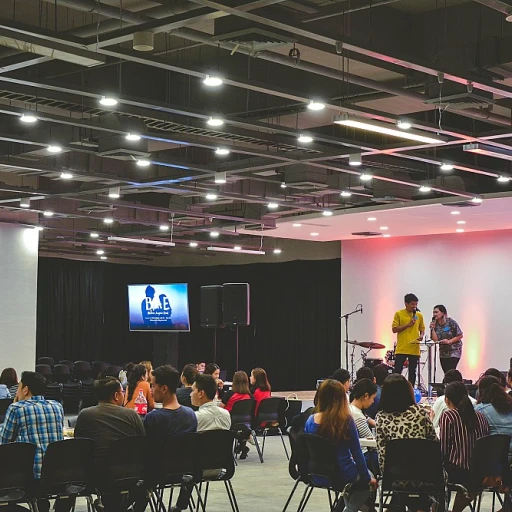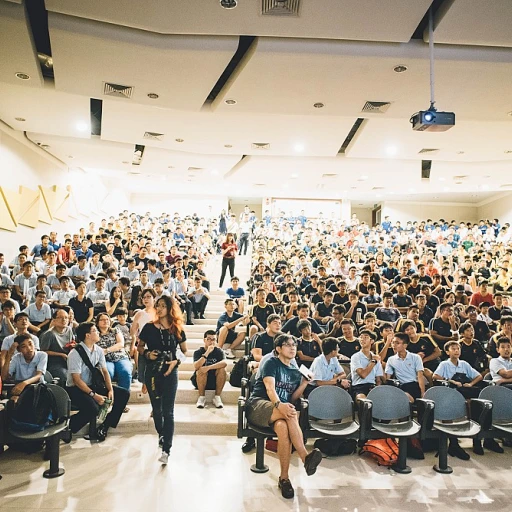
Understanding the Impact of Late Employee Alerts
The Consequences of Delayed Employee Notifications
Timely employee alerts are crucial to maintaining an efficient work environment. When employees receive late notifications regarding their attendance or alerts on shifts, there can be detrimental impacts on both employee performance and overall company functionality.
Delays in the alert system can lead to various attendance issues, with employees becoming unsure of their schedules or missing out on crucial information. This affects team dynamics and undermines employee engagement. Additionally, late arrivals due to ineffective communication can compromise a team's ability to meet time-sensitive goals. These situations may ultimately lead to more rigorous disciplinary action measures like warning letters or even loss of talent.
One resourceful guide, navigating change in human resources communication, articulates how proactive communication can help mitigate these issues. Understanding the larger impact of late notifications on the workplace culture is key in fostering a well-organized and responsive system.
Deploying an efficient emergency notification mechanism ensures that all real-time alerts are broadcast swiftly to minimize disturbances. It is through this preciseness that firms can not only impact employee attendance positively but also aid in achieving streamlined management workflows.
Crafting Clear and Compassionate Communication
Creating Effective Communication with Empathy
Crafting clear and compassionate communication with employees about late arrivals or communication about attendance issues is pivotal in maintaining a harmonious workplace environment. Effective communication helps address the immediate issue while fostering a sense of understanding and respect between management and employees.- Be Direct but Considerate: When addressing employee tardiness, clarity is crucial. However, a direct approach should not equate to harshness. Words should be chosen thoughtfully, ensuring the employee receives the message without feeling demoralized or undervalued.
- Individualize the Approach: Understanding each team member's circumstances allows for tailored communication. Consider factors such as personal emergencies or temporary hardships that may have led to the tardiness.
- Offer Constructive Feedback: Encourage an open dialogue where the employee feels comfortable sharing their challenges. This can lead to proactive solutions and demonstrate that the company's focus is not merely on discipline but on employee engagement and retention.
- Empathy in Written Communication: Whether issuing a written warning letter or an employee text, the rhetoric should balance seriousness with empathy. A letter or message that acknowledges the situation and offers possible solutions can transition an alert from being merely a notification to a meaningful interaction.
Leveraging Technology for Timely Alerts
Utilizing Advanced Tools for Immediate Communication
In an ever-evolving workplace, leveraging technology is imperative for ensuring timely communication regarding employee alerts. Streamlining how these alerts are managed can significantly alleviate potential attendance issues. A robust alert system isn't just about sending warnings but creating an ongoing loop of communication that fosters both accountability and empathy within your team.
Implementing a real-time notification system allows managers to stay updated about employee attendance and take immediate actions if necessary. By using tools like automated text alerts and integrating them with existing time clock systems, companies can efficiently track late arrivals and address them before they become chronic issues. An effective system doesn't just inform; it enhances employee engagement by providing transparent records and reducing misunderstandings.
Properly configured mass notifications ensure that employee tardiness and discretionary actions are communicated clearly without any lag. This integration leads to a more proactive approach in dealing with attendance issues, considerably boosting the overall health and morale of the team. It’s vital for every organization to not only focus on technology but also on how it helps in shaping a responsible and cohesive work environment.
Consider exploring more about creating an integrated system for employee notifications to ensure that both employee and employer are aligned towards common personnel goals.
Balancing Empathy and Accountability
Finding the Right Balance Between Understanding and Responsibility
When managing late employee alerts, it's crucial to strike a balance between empathy and accountability. While it's important to understand the reasons behind an employee's tardiness, maintaining a standard of punctuality is equally vital for the overall productivity of the team.
Empathy plays a significant role in addressing attendance issues. Employees may face emergencies or personal challenges that impact their ability to arrive on time. Acknowledging these situations can foster a supportive work environment. However, it's essential to ensure that understanding doesn't translate into leniency that disrupts the company's operations.
Implementing a Fair and Transparent System
To achieve this balance, companies can implement a transparent alert system. This system should provide real-time notifications to both the employee and management, allowing for immediate communication. By using a mass notification system, managers can send text alerts or messages to remind employees of their responsibilities, while also offering a platform for employees to report emergencies or delays.
When an employee is late, a warning letter or a written warning can be issued if necessary. However, these should be used judiciously, ensuring that they are part of a broader strategy that includes understanding and support. This approach helps maintain employee engagement and reduces the likelihood of repeated tardiness.
Encouraging Open Communication
Open communication is key to balancing empathy and accountability. Managers should encourage team members to communicate any potential delays as soon as possible. This proactive approach allows for adjustments in the workflow and minimizes disruptions. Additionally, regular feedback sessions can help address any underlying issues contributing to employee tardiness.
Ultimately, the goal is to create a culture where employees feel valued and understood, yet are aware of their responsibilities. By fostering this environment, companies can effectively manage late arrivals while maintaining a productive and harmonious workplace.
Training Managers for Effective Communication
Equipping Managers with Essential Communication Skills
In the realm of human resources, managers play a pivotal role in addressing employee tardiness and attendance issues. Their ability to communicate effectively can significantly impact how late arrivals are managed and perceived within the company. Training managers to handle these situations with both empathy and authority is crucial for maintaining a productive work environment.
Understanding the Importance of Timely Communication
Managers should be trained to recognize the importance of timely communication when dealing with employee alerts. A well-timed text alert or notification can prevent misunderstandings and help manage expectations. Real-time communication ensures that team members are aware of their responsibilities and any potential consequences of repeated tardiness.
Balancing Empathy with Accountability
While it's important for managers to be understanding of emergencies that may cause an employee to be late, they must also hold employees accountable for their attendance. Training should focus on how to deliver messages that are clear yet compassionate, ensuring that employees feel supported while understanding the importance of punctuality.
Utilizing Technology for Efficient Management
Managers should be adept at using the company's alert system to manage attendance issues effectively. This includes sending out mass notifications or written warnings when necessary. Familiarity with the notification system can help managers address issues promptly, reducing the need for disciplinary action.
Providing Constructive Feedback
Training should also cover how to provide constructive feedback to employees who are frequently late. This involves crafting a warning letter or having a conversation that focuses on improvement rather than punishment. Encouraging open dialogue can enhance employee engagement and foster a culture of punctuality within the team.
Creating a Culture of Punctuality
Fostering a Punctual Work Environment
Understanding the challenges associated with employee tardiness is crucial in addressing attendance issues. An effective notification system can send real-time alerts to keep the team informed and engaged. However, it is vital to foster a culture of punctuality that encourages employees to respect time.- Establish Clear Attendance Policies: Clearly defined policies regarding employee attendance and late arrivals can prevent confusion. These policies should be communicated effectively through various channels, including team meetings and written communications like messages or a warning letter.
- Utilize Technology for Real-Time Updates: Incorporating a real-time alert system ensures employees are always informed about emergency notifications or relevant updates regarding attendance. An employee notification system can send out text alerts, mitigating potential confusion about schedule changes.
- Implement Recognition and Reward Programs: Acknowledging employees who consistently adhere to the attendance policies can motivate others. Establishing an employee of the month program to recognize punctuality goes a long way in maintaining a culture of punctuality.
- Encourage Open Communication: Creating a platform where team members can openly discuss their challenges with time management fosters transparency. Team leaders and managers should actively engage with employees to understand their unique situations and provide necessary support, avoiding any unnecessary disciplinary action unless repeated warnings have been ignored.
- Regular Training Sessions: Regularly training managers in delivering effective communication regarding employee attendance is critical. Training should emphasize balancing empathy and accountability, which will aid in sending out employee alerts effectively.













